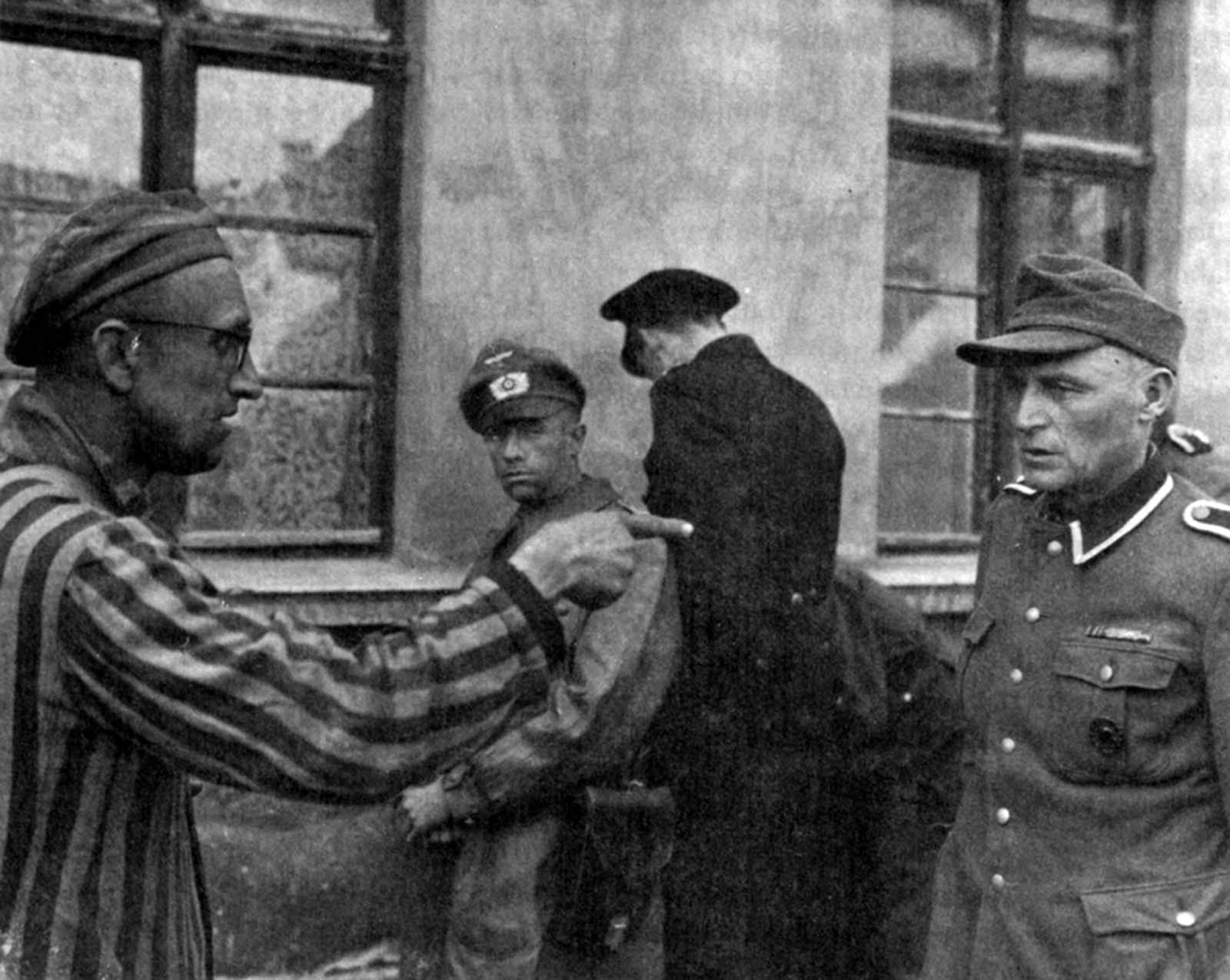The last Nazi war crimes suspect facing deportation from the US was taken from his New York City home and spirited early Tuesday morning to Germany, the White House said.
The deportation of the 95-year-old former concentration camp guard, Jakiw Palij, came 25 years after investigators first confronted him about his World War II past and he admitted lying to get into the U.S., claiming he spent the war as a farmer and factory worker.
Palij lived quietly in the U.S. for years, as a draftsman and then as a retiree, until nearly three decades ago when investigators found his name on an old Nazi roster and a fellow former guard spilt the secret that he was “living somewhere in America.”
Palij told Justice Department investigators who showed up at his door in 1993: “I would never have received my visa if I told the truth. Everyone lied.”
A judge stripped Palij’s citizenship in 2003 for “participation in acts against Jewish civilians” while an armed guard at the Trawniki camp in Nazi-occupied Poland and was ordered deported a year later.
But because Germany, Poland, Ukraine, and other countries refused to take him, he continued living in limbo in the two-story, red brick home in Queens he shared with his wife, Maria, now 86. His continued presence there outraged the Jewish community, attracting frequent protests over the years that featured such chants as “your neighbour is a Nazi!”
According to the Justice Department, Palij served at Trawniki in 1943, the same year 6,000 prisoners in the camps and tens of thousands of other prisoners held in occupied Poland were rounded up and slaughtered. Palij has admitted serving in Trawniki but denied any involvement in war crimes.
Last September, all 29 members of New York’s congressional delegation signed a letter urging the State Department to follow through on his deportation and Ambassador Richard Grenell made it a priority after arriving in Germany earlier this year.
The deportation came after weeks of diplomatic negotiations, which the White House said President Donald Trump had supported.
“Through extensive negotiations, President Trump and his team secured Palij’s deportation to Germany and advanced the United States’ collaborative efforts with a key European ally,” the White House said.
Germany’s Interior Ministry and Justice Ministry and Chancellor Angela Merkel’s office did not immediately have a comment on where Palij would be taken in Germany and what exactly would happen to him. Prosecutors there have previously said it does not appear that there’s enough evidence to charge him with wartime crimes.
Palij’s deportation is the first for a Nazi war crimes suspect since Germany agreed in 2009 to take John Demjanjuk, a retired Ohio autoworker who was accused of serving as a Nazi guard. He was convicted in 2011 of being an accessory to more than 28,000 killings and died 10 months later, at age 91, with his appeal pending.
Palij, whose full name is pronounced Yah-keev PAH’-lee, entered the U.S. in 1949 under the Displaced Persons Act, a law meant to help refugees from post-war Europe.
He told immigration officials that he worked during the war in a woodshop and farm in Nazi-occupied Poland; at another farm in Germany, and finally in a German upholstery factory. Palij said he never served in the military.
In reality, officials say, he played an essential role in the Nazi program to exterminate Jews in German-occupied Poland, as an armed guard at Trawniki. According to a Justice Department complaint, Palij served in a unit that “committed atrocities against Polish civilians and others” and then in the notorious SS Streibel Battalion, “a unit whose function was to round up and guard thousands of Polish civilian forced labourers.”
After the war, Palij maintained friendships with other Nazi guards who the government says came to the U.S. under similar false pretenses. And in an interesting coincidence, Palij and his wife purchased their home near LaGuardia Airport in 1966 from a Polish Jewish couple who had survived the Holocaust and were not aware of his past.
The Justice Department’s special Nazi-hunting unit started piecing together Palij’s past after a fellow Trawniki guard identified him to Canadian authorities in 1989. Investigators asked Russia and other countries for records on Palij beginning in 1990 and first confronted him in 1993.
It wasn’t until after a second interview in 2001 that he signed a document acknowledging he had been a guard at Trawniki and a member of the Streibel Battalion. Palij suggested at one point during that interview that he was threatened with death if he refused to work as a guard, saying “if you don’t show up, boom-boom.”
Though the last Nazi suspect ordered deported, Palij is not the last in the U.S.
Since 2017, Poland has been seeking the extradition of Ukrainian-born Michael Karkoc, an ex-commander in an SS-led Nazi unit that burned Polish villages and killed civilians during the war. The 99-year-old who currently lives in Minneapolis was the subject of a series of 2013 reports by the AP that led Polish prosecutors to issue an arrest warrant for him.
In addition to Karkoc, there are almost certainly others in the U.S. who have either not yet been identified or investigated by authorities.
The American public did not become fully aware until the 1970s that thousands of Nazi persecutors had gone to the U.S. after World War II. Some estimates say 10,000 may have made the U.S. their home after the war.
Since then, the Justice Department has initiated legal proceedings against 137 suspected Nazis, with about half, 67, being removed by deportation, extradition or voluntary departure. Of the rest, 28 died while their cases were pending and 9 were ordered deported but died in the U.S. because no other country was willing to take them.
Source: News24

